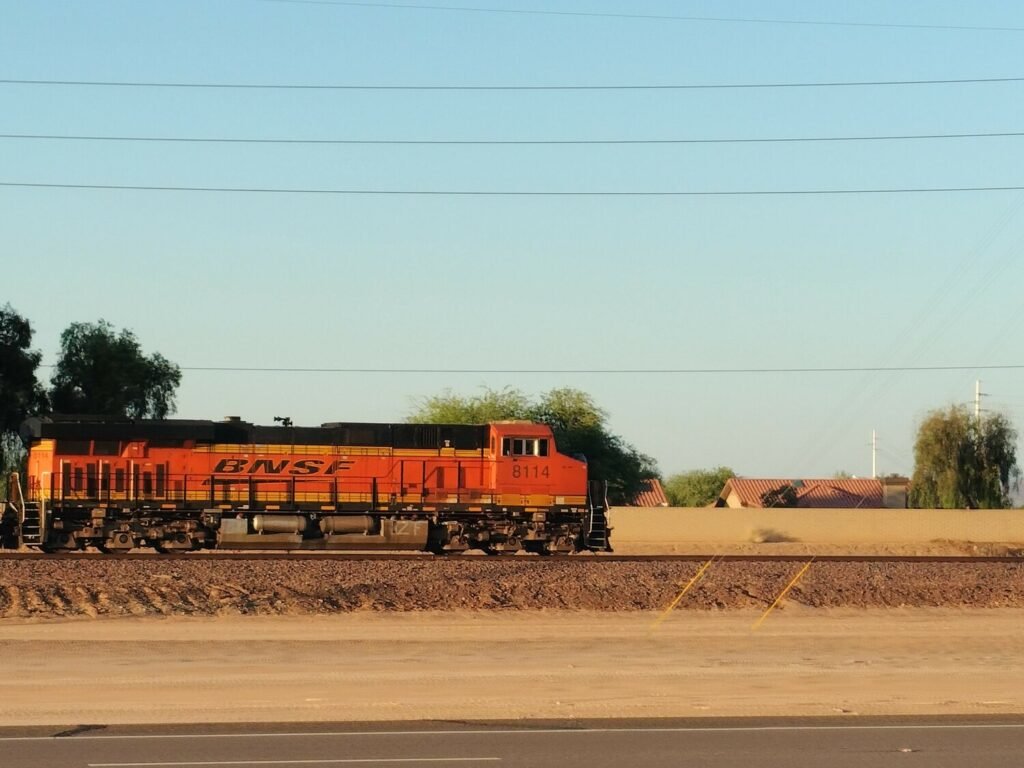Concerns Rise Over BNSF Development in Northwest Valley
As construction preparations ramp up for a significant development in the Northwest Valley, many community advocates have secured influencing positions and are raising alarms about potential negative effects on the local area.
BNSF Railroad, however, is pushing back against what it considers misinformation regarding the extensive $3.2 billion project set to take place near 215th Avenue and US 60, which spans 4,300 acres.
Lena Kent, BNSF’s public relations director, highlighted that truck traffic is a major concern. She emphasized, “the trucks don’t go to residents, despite what schools and residents may have claimed.”
This specific worry was voiced in a letter from Aspasia Angelou, the principal of Nadabourg Unified School District, to Maricopa County Board of Supervisors member Debbie Lesko. Angelou urged the rejection of plans for an intermodal facility opposite Nadabourg Elementary School and the Wittmann district office.
Angelou’s aim is clear: to safeguard the well-being of “hundreds of children” from exposure to harmful diesel emissions and pollutants.
Concerns echo those of community activist Bad Meador and Lisa Everett, precinct chair of Legislative District 29. Both expressed that while they aren’t against the BNSF development, they feel alternative, less populated sites should be considered instead to avoid risks associated with pollution and hazardous materials.
As Everett put it, “People moved to Whitman to escape the city— they didn’t sign up for this.”
Another sticking point is the anticipated increase in truck traffic, which some residents fear will be significant if the facility moves forward.
Meador, a Sun City West resident, continues to investigate the BNSF Intermodal Hub, participating in a grassroots campaign through the “West Valley Government Issues Forum.”
In response to these local worries, Kent reiterated BNSF’s commitment to safety, stating that its hazmat program boasts a 99.999% success rate in safe deliveries. She pointed out that certain hazardous materials, like chlorinated solvents, are strictly prohibited.
“BNSF takes serious care in transporting essential goods, especially dangerous materials,” Kent noted, while acknowledging legal obligations that prevent the outright banning of certain shipments.
Kent also mentioned that BNSF plans to work closely with local transport agencies to evaluate the traffic impacts of the project and necessary infrastructure changes. When asked about emergency access to local hospitals, she claimed the project would reduce train traffic through Sun City West by around 40%, ultimately improving access to Banner Dell eWeb Medical Center.
She countered some of Everett’s statements regarding job impacts, saying: “The average pay at BNSF is around $132,000, significantly higher than the national average.”
According to BNSF, the project is projected to generate $4 billion in labor income and contribute $258 million annually in local and state taxes. However, Everett remains critical, arguing that the development might create low-wage jobs and suggesting it could displace existing employment opportunities.
BNSF officials have not clarified concerns regarding potential job relocations from their Glendale site.







